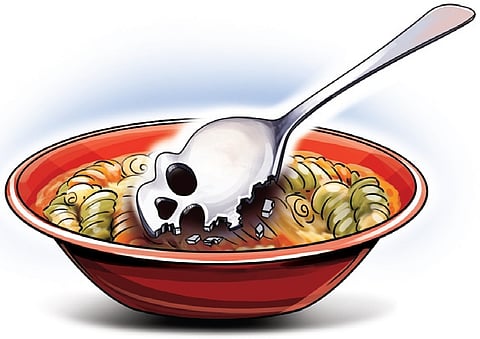

BENGALURU: The thrill of enjoying street food can quickly turn to concern when one realises the hidden chemicals incorporated in each bite of it. Around 80% of the food sold outside is currently considered ‘unsafe for regular consumption’, inspections by the State Food Safety Department revealed.
The findings suggested that most of the food outlets, from small scale shops to popular eateries, use cheap, low-quality ingredients, and follow poor storage practices. A senior official mentioned that from snacks to full meals, almost all food items are prepared with reused low-grade oil, substandard cornflour and artificial colours. “Even legally permitted additives are being used in excessive amounts,” the official added.
On average, anyone eating outside is consuming dangerously high levels of sodium, which is leading to various health concerns. “Nearly nothing is left to eat without any doubt,” the official said.
Many believe that purchasing food from small, local vendors might pose risks, while others think that dining at popular restaurants guarantees safety and quality. Many are even lured into a false sense of security, thinking that the more popular eateries maintain a higher standard because they serve a high volume of customers.
The grim reality, however, is that almost everything is adulterated to a level regardless of the source, the official stressed.
The official said that most often, sweets are tainted with harmful synthetic dyes or are either prepared with additives beyond the legal limit, while items like fried food or biryani are generally found to be prepared with low-quality, unsanitary meat. The eateries often use cheap additives to enhance flavour, and most importantly ‘smell and appearance’. Each item is usually found to be cooked in re-processed oil, which after multiple uses, releases toxic compounds harmful to health.
Even milk products like paneer and curd are often bulked up with harmful starch or diluted with synthetic alternatives, while packaged foods are laden with preservatives and flavours to mask poor quality. Even off-season fruits are ripened with calcium carbide, the officer said, emphasising that the practice has infiltrated across the state.